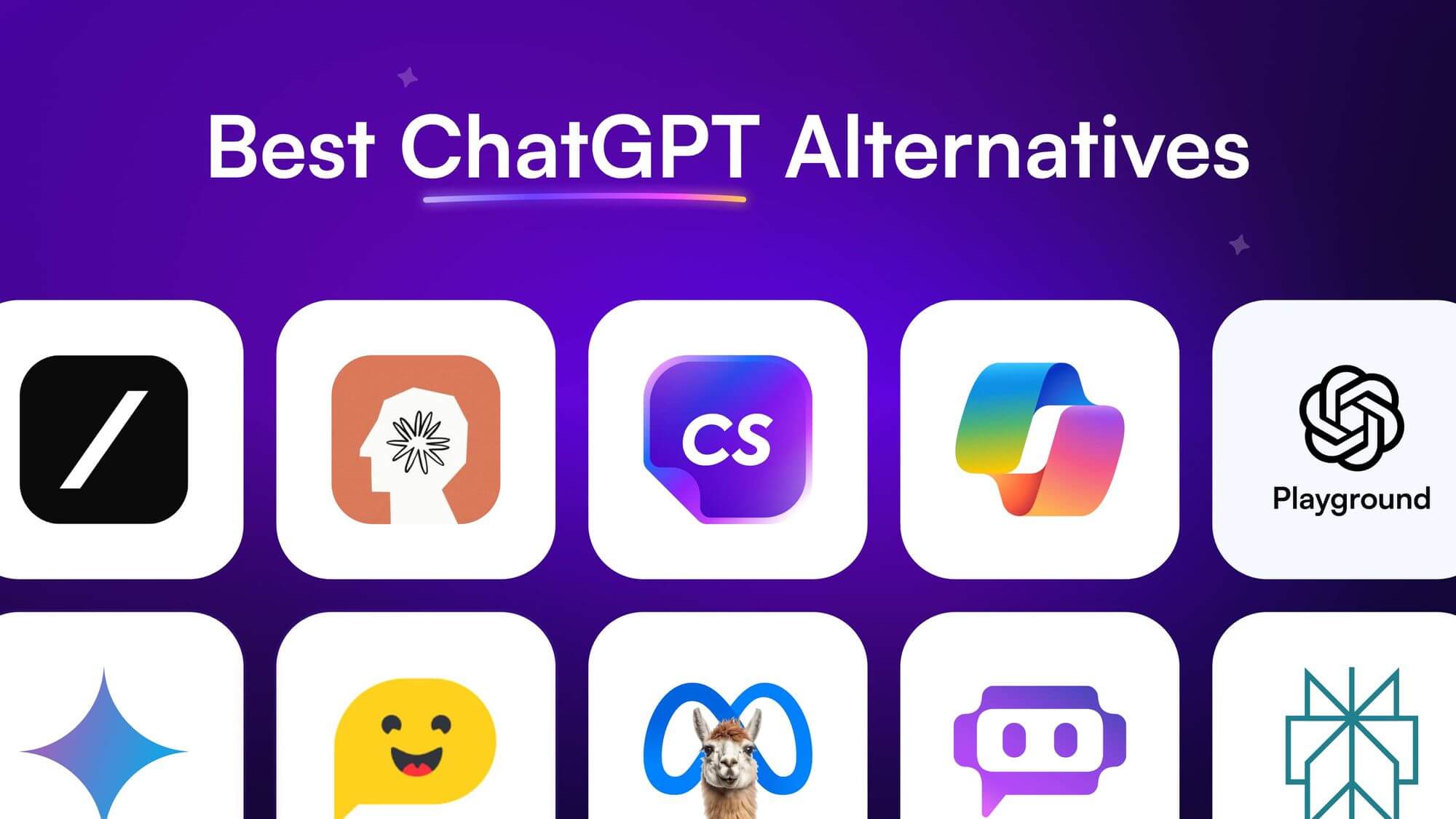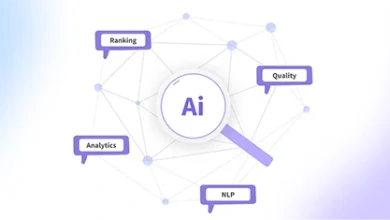In recent years, ChatGPT has gained significant popularity as a conversational AI model, offering businesses the ability to automate customer service, create content, and engage with users in a natural, human-like way. However, while ChatGPT is incredibly versatile, it might not always be the best choice for every business or use case. chagpt alternative are emerging as essential tools, offering businesses the flexibility and specificity they need to meet their unique requirements.
For businesses seeking highly tailored solutions, industry-specific features, or better scalability, alternatives to ChatGPT are not just an option—they’re a necessity. In this blog, we will explore why businesses should consider ChatGPT alternatives for their AI needs, and how these alternatives can help them meet their specific objectives.
1. Customizability: Building Tailored AI Solutions
One of the main reasons businesses turn to ChatGPT alternatives is the ability to customize the AI model for their specific needs. While ChatGPT excels in general conversations, its generic responses may not always align with a business’s branding, tone, or specific customer requirements.
Alternatives such as Rasa and Dialogflow provide businesses with the tools to create custom workflows, specialized intents, and industry-specific language. These tools allow businesses to train the AI with custom data, ensuring it aligns more closely with their objectives.
For example, a law firm may need an AI that understands legal terminology, handles sensitive information, and can guide users through specific legal queries. ChatGPT may not always capture these nuances, but platforms like Rasa and Dialogflow can be fine-tuned to meet these needs more effectively.
Key Benefits:
-
Industry-Specific Customization: Build AI that aligns with your business’s specific language and industry.
-
Better Brand Consistency: Tailor the responses to match your company’s tone and voice.
-
Personalized Interactions: Improve user satisfaction by creating responses based on customer profiles and preferences.
For businesses in specialized industries or those looking to closely align AI with their branding, customizability is a key benefit of choosing alternatives to ChatGPT.
2. Data Privacy and Security: Control Over Sensitive Information
Data privacy and security are top priorities for businesses, especially those in regulated industries such as finance, healthcare, or law. ChatGPT, as a cloud-based solution, processes all data on OpenAI’s servers, which may raise concerns about data privacy and security for certain organizations.
ChatGPT alternatives like IBM Watson Assistant and Rasa allow businesses to keep sensitive customer data within their own infrastructure or on their private cloud. This means they have more control over how customer information is handled, stored, and protected.
For example, a business dealing with personal health information (PHI) might need to comply with regulations like HIPAA (Health Insurance Portability and Accountability Act). In such cases, choosing an AI solution like IBM Watson or Rasa, which offers more data control options, is essential to meet compliance requirements and safeguard sensitive data.
Key Benefits:
-
Data Ownership: Businesses can store and manage their data on their own infrastructure or private cloud.
-
Regulatory Compliance: Easily meet industry-specific standards like HIPAA, GDPR, and PCI DSS.
-
Enhanced Security: Ensure that data privacy concerns are addressed by keeping information in-house.
For businesses that handle sensitive data or those subject to strict privacy regulations, using alternatives that offer greater control over data security is crucial.
3. Better Integration Capabilities: Seamless Workflow Automation
While ChatGPT offers powerful conversational capabilities, it may not always integrate seamlessly with a business’s existing software or workflow systems. For businesses looking to automate complex workflows or integrate AI into a broader tech stack, this could pose a challenge.
Many ChatGPT alternatives offer better integration capabilities with popular CRM systems, ERP platforms, e-commerce solutions, and other business tools. For example, Dialogflow integrates effortlessly with Google Cloud services, while Tidio integrates with platforms like Shopify and Facebook Messenger to manage customer support across multiple touchpoints.
For e-commerce businesses, integrating AI with an inventory management system or payment gateway can streamline operations and improve customer service. The ability to connect AI with existing tools is a critical feature that alternatives can provide, often more easily than ChatGPT can.
Key Benefits:
-
Seamless Integration: Easily connect AI with CRM, ERP, and other essential business systems.
-
Automation: Automate end-to-end workflows, from customer support to order processing, to improve efficiency.
-
Cross-Platform Support: Manage customer interactions across websites, social media, and mobile apps.
If your business requires AI integration with a range of software tools or platforms, ChatGPT alternatives can provide the customized connectivity necessary for smooth workflow automation.
4. Enhanced Scalability: Adapting to Growing Business Needs
Scalability is essential for businesses that are looking to grow and expand. As customer demand increases, businesses need an AI solution that can scale with them, handling higher volumes of interactions and more complex workflows without compromising on performance.
ChatGPT is a great tool for small to medium-sized projects but may face limitations when it comes to handling large-scale operations or enterprise-level demands. Alternatives like IBM Watson Assistant and Kore.ai are designed to scale with business growth, providing enterprise-level support and the flexibility to handle a large number of interactions across multiple channels.
For example, Kore.ai can handle complex workflows, multi-turn conversations, and deep integrations with other business systems, all while maintaining high performance as the business grows. Additionally, these platforms offer features like AI training, analytics, and customer segmentation, allowing businesses to fine-tune their models and scale effectively.
Key Benefits:
-
Enterprise-Level Support: Easily scale AI to handle increased customer interactions and more complex tasks.
-
Multi-Channel Support: Manage interactions across multiple platforms as your business expands.
-
Analytics and Reporting: Monitor performance and optimize AI solutions as your business grows.
If your business is expanding and requires a conversational AI platform that can scale with your needs, alternatives to ChatGPT can offer more robust scalability and advanced features.
5. Cost-Effectiveness: Budget-Friendly Solutions for Smaller Businesses
While ChatGPT offers a lot of value, the costs associated with using the API for large-scale operations or frequent queries can add up quickly. For small businesses or startups, these costs may not always fit into the budget, especially if they are just getting started.
Many ChatGPT alternatives offer more cost-effective pricing models tailored to the needs of small businesses. For example, Rytr and Copy.ai are designed to help small businesses create content and handle customer queries at an affordable price point, without the need for a hefty budget.
These platforms often offer pay-as-you-go models or lower-tier pricing plans, allowing businesses to access powerful AI capabilities without breaking the bank. For startups with limited resources, this can be a huge advantage in terms of staying within budget while still leveraging AI to improve business operations.
Key Benefits:
-
Affordable Pricing: Many alternatives offer flexible pricing plans to suit small businesses and startups.
-
Scalable Solutions: Pay only for what you use, making it easier to scale your AI usage based on business needs.
-
Low-Cost Entry: Get started with AI-driven solutions at a lower initial cost.
For small businesses looking to use AI-driven tools without overspending, choosing a cost-effective alternative to ChatGPT can provide the necessary flexibility to scale as needed.
6. Faster Response Times: Instant Customer Engagement
ChatGPT can sometimes face delays in providing responses, particularly during periods of high demand. For businesses that rely on real-time customer interactions, these delays can negatively impact user experience and satisfaction.
Some ChatGPT alternatives, such as Tidio and Ada, are optimized for instant responses, allowing businesses to provide immediate answers to customer inquiries. The ability to provide near-instantaneous support, especially during peak times, can significantly enhance the customer experience.
Key Benefits:
-
Low Latency: Offer instant responses to customer queries, improving user satisfaction.
-
Real-Time Support: Engage with customers as they browse your website or interact with your business.
-
Enhanced Experience: Speed up response times to create seamless customer interactions.
For businesses where response time is a critical factor in customer satisfaction, chagpt alternative optimized for instant interactions offer significant advantages.
Conclusion: Why ChatGPT Alternatives Are Essential for Businesses
While ChatGPT remains a powerful and widely used AI solution, there are several reasons why businesses should consider alternatives for their specific needs. From customization and data privacy to scalability and integration capabilities, these alternatives offer tailored solutions that can better meet the unique demands of different industries and business sizes.
By evaluating your business’s goals, customer needs, and technical requirements, you can choose the right AI solution that provides the flexibility, security, and scalability necessary to thrive in an increasingly competitive marketplace.




